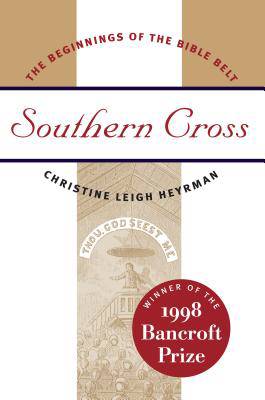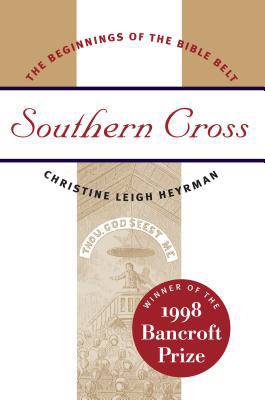
- Afhalen na 1 uur in een winkel met voorraad
- Gratis thuislevering in België vanaf € 30
- Ruim aanbod met 7 miljoen producten
- Afhalen na 1 uur in een winkel met voorraad
- Gratis thuislevering in België vanaf € 30
- Ruim aanbod met 7 miljoen producten
Omschrijving
Revealing a surprising paradox at the heart of America's "Bible Belt," Christine Leigh Heyrman examines how the conservative religious traditions so strongly associated with the South evolved out of an evangelical Protestantism that began with very different social and political attitudes.
Although the American Revolution swept away the institutional structures of the Anglican Church in the South, the itinerant evangelical preachers who subsequently flooded the region at first encountered resistance from southern whites, who were affronted by their opposition to slaveholding and traditional ideals of masculinity, their lack of respect for generational hierarchy, their encouragement of women's public involvement in church affairs, and their allowance for spiritual intimacy with blacks. As Heyrman shows, these evangelicals achieved dominance in the region over the course of a century by deliberately changing their own "traditional values" and assimilating the conventional southern understandings of family relationships, masculine prerogatives, classic patriotism, and martial honor. In so doing, religious groups earlier associated with nonviolence and antislavery activity came to the defense of slavery and secession and the holy cause of upholding both by force of arms -- and adopted the values we now associate with the "Bible Belt."
Specificaties
Betrokkenen
- Auteur(s):
- Uitgeverij:
Inhoud
- Aantal bladzijden:
- 352
- Taal:
- Engels
Eigenschappen
- Productcode (EAN):
- 9780807847169
- Verschijningsdatum:
- 27/04/1998
- Uitvoering:
- Paperback
- Formaat:
- Trade paperback (VS)
- Afmetingen:
- 157 mm x 237 mm
- Gewicht:
- 544 g

Alleen bij Standaard Boekhandel
Beoordelingen
We publiceren alleen reviews die voldoen aan de voorwaarden voor reviews. Bekijk onze voorwaarden voor reviews.








